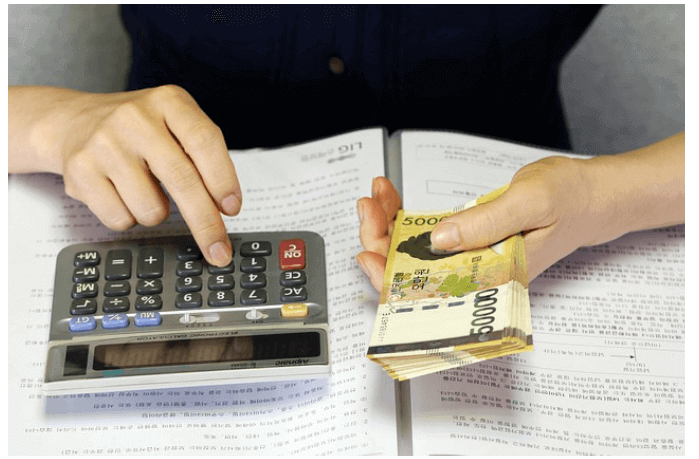
6 Reasons Why Traditional Payment Methods are Crucial in the Digital Age
In today’s tech-savvy age, the allure of digital payments is hard to resist. However, their prominence doesn’t eclipse the value of traditional payment methods. Rather than fading into obscurity, cash, checks, and money orders hold a crucial position in our economy.
Their tangible nature offers security and control that digital transactions sometimes can’t provide. Additionally, for some customers and businesses alike, these time-tested methods are preferred choices due to their familiarity or practicality in certain situations.
In this article, we will delve into why traditional means of payment still hold considerable significance in the digital age.
1. The Tangibility Factor: Security Value of Cash and Checks
Table of Contents
Speaking in terms of security, it’s undeniable that the tangibility of traditional payments like cash and checks offers a certain level of assurance to users. For instance, if you use a customizable check template or even hand over physical currency, there’s a clear paper trail.
This tangible transaction provides an immediate sense of control as you can physically see where your money is going. It also allows for easier personal record-keeping and clearer financial management, something digital transactions don’t always offer.
Therefore, this concrete sense of security puts traditional payment methods at the front line, even in today’s rapidly digitizing world.
2. Boosts Business Sustainability
In an increasingly competitive market, businesses need to stay relevant and accessible by accepting a full range of payment methods. Although digital payments like credit card transactions or paying with bitcoins are rising in popularity, relying solely on these could alienate a significant customer base that still prefers traditional ones.
Offering the option of cash or check transactions – alongside digital options – paves the way for excellent customer service, thus boosting overall business sustainability. It ensures that you cater to all customer preferences, broadening your reach in the market.
This holistic approach to offering diverse payment options is key to staying flexible and customer-centric in today’s dynamic economy.
3. Shields Against Cybercrime – Traditional Methods Keep Your Money Safe
While convenient, digital payments aren’t immune to risks. Cybercrime is a stark reality of the digital age – data breaches and identity theft are serious threats that can leave consumers vulnerable.
This is where traditional payment methods shine as an effective guard. Payments made with cash or checks lack the electronic trails that cybercriminals often exploit, providing a layer of protection against those threats.
In addition, traditional banking institutions have tried-and-true systems in place to detect suspicious activity involving check and money transfer fraud. These fraud prevention measures enhance security, reinforcing why conventional payment methods still hold significant value today.
4. Covers All Bases – Not Everyone Prefers Digital Payments
Despite the convenience of digital payments, not everyone is quick to abandon traditional methods. Several factors contribute to this preference – some people may find cash and checks easier to use, or they may not trust digital payment platforms due to fear of cybercrime.
Others might not have access to stable internet service, which is crucial for online transactions. Many older adults who are less tech-savvy also prefer traditional ways of managing money that they’ve used for years.
By recognizing these reasons and providing multiple payment options, businesses can serve a broader range of customers, reinforcing the need for traditional payment methods in our increasingly digital society.
5. Fosters Trust and Personal Connections
In a digital age where instant gratification is the norm, traditional payment methods like cash and checks can help build business relationships. When you walk into a local store and pay with cash or write out a check, there is a sense of trust that is established – it’s interpersonal and human.
Likewise, in certain professional situations such as dealing with contractors or local vendors, paying through cheque establishes trust and good faith. In addition to this connection-building aspect, traditional payments are also trusted because they’ve been around for generations – their longevity attests to their credibility.
This interconnected layer of trust and personal rapport only reinforces the value of traditional payment pathways in our contemporary world.
6. The Crucial Backup: Traditional Payments During Digital Failures
Ever faced a situation where a digital payment platform failed? Server crashes, power outages, or software glitches can disrupt digital transactions drastically. Unlike their electronic counterparts, traditional payment methods have an added advantage – they don’t rely on technology to function effectively.
A cash transaction is unaffected by weak internet connections or compromised servers and offers an indispensable backup during digital failures.
Similarly, checks are also insulated from these challenges because they only require the issuer’s and receiver’s banking institutions for processing. In such scenarios, traditional payments show their worth – providing reliable alternatives when technology disappoints or isn’t accessible.
Embracing the Past for Future Success
In conclusion, despite the digital payment revolution, traditional methods like cash and checks connect us to centuries-old practices of transaction. They represent familiar security, inclusivity, and an undoubted shield against cyber misconduct.
These reasons highlight why it is essential for such methods to coexist with digital solutions in our economy. By embracing these remarkable attributes, we ensure a financial world that is inclusive, secure, and ultimately successful.











